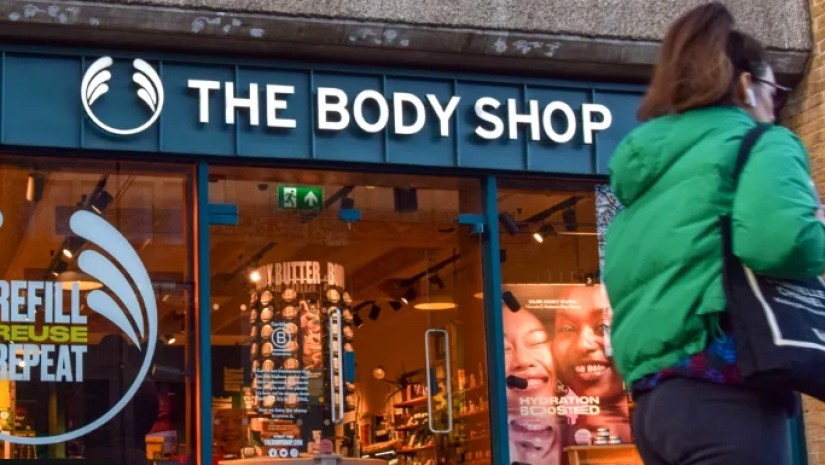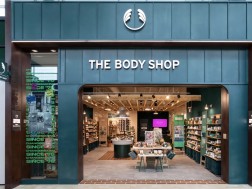The Body Shop's UK business has entered administration, potentially putting up to 2,000 jobs at risk.
The retailer's shops will remain open as usual while efforts are made to try to save the UK firm.
Restructuring firm FRP, which has been appointed as the administrator, said it would now consider all options to find a way forward for the business.
The Body Shop was started by the late Dame Anita Roddick in 1976 from a single shop in Brighton.
It grew into a global brand, pioneering ethical trading and a stance against testing beauty products on animals.
FRP Advisory said creating "a more nimble and financially stable UK business" was an important step in it becoming a modern beauty brand "relevant to customers and able to compete for the long term".
The administrators are expected to try to substantially cut costs, including on property and rents which could lead to job cuts.
It is highly unlikely that The Body Shop name will completely disappear from Britain's High Streets after nearly 50 years.
The retailer's British business has more than 200 shops and a handful of franchises across the UK as well as its headquarters in London.
Aurelius, the European private equity firm that bought the brand for £207m in November, took the drastic decision to place it into administration after poor sales during the key Christmas trading period.
FRP said that The Body Shop had faced "an extended period of financial challenges under past owners".
The Body Shop has now changed hands three times since it was sold by founder Dame Anita in 2006, shortly before her death the following year.
There are hopes it will be restructured to better compete with brands such as Lush, best-known for its bath bombs and face masks, which is popular with younger shoppers.
Lesley Hayhurst, 70, was one of The Body Shop's first customers and lived locally to its first shop in Brighton.
She told the BBC she had first gone into the store in her early 20s to get her ears pierced.
"It was so new, we didn't have anything else like it. The whole atmosphere was so colourful, and yet so cosy," she said.
But Lesley said the products she likes are expensive and that she cannot always afford to buy them
"I think it's sad. It's another one of our High Street institutions that we're losing," she added.
Jasmine Payne, 39, has similar happy memories of weekends spent in The Body Shop and was particularly drawn to the company's stance of not testing products on animals.
"I was a teenager growing up in the 1990s, now I'm nearly 40 and although I still love the products they're too expensive," she said.
Jasmine says she can buy other shampoo and conditioner for half the price or less, which again is not tested on animals.
"If I could afford it, then I would buy Body Shop [branded products]," she said.
FRP Advisory said that the brand had faced a "difficult trading environment" like other shops as customers' budgets have been squeezed and online retailing has boomed in recent years.
Wilko, for example, fell into administration as it failed to keep up with competitors on pricing, although the brand name has already been revived on high streets.
Andrew Goodacre, the boss of the British Independent Retailers Association, described the latest news on The Body Shop as "sad".
"It seems that we hear about the demise of a national retailer every few months... We hope that the employees and franchisees are looked after while the future of this chain is decided."
Source: BBC















